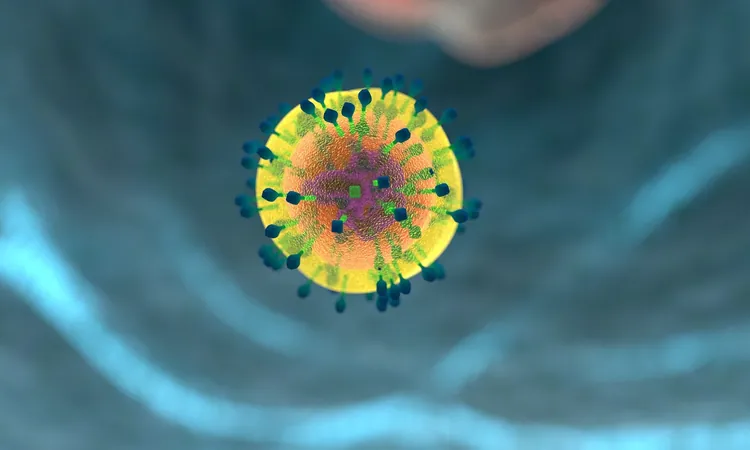
Breakthrough in Cancer Treatment: New Bioengineered Therapeutics Show Promise!
2024-12-18
Author: Sarah
Introduction
A revolutionary advancement in cancer treatment has emerged from the Children's Medical Research Institute (CMRI). A dedicated team of scientists, led by Associate Professor Leszek Lisowski, has unveiled a groundbreaking method to bioengineer therapeutic products that could transform the landscape of cancer therapy.
Focus of Research
Published in the prestigious journal Molecular Therapy, this innovative research focuses on Chimeric Antigen Receptor (CAR) T cell therapies. These cutting-edge treatments have already demonstrated remarkable potential against various cancers, particularly B cell malignancies such as acute lymphoblastic leukemia (ALL). However, their promise extends beyond blood cancers, sparking hopes for effective interventions against solid tumors as well.
Traditional CAR T Cell Therapy
Traditionally, CAR T cells are derived from a patient’s own T cells, which are genetically altered using viral vectors to express a specially designed receptor. This allows T cells to locate and destroy cancer cells more efficiently. Currently, the US Food and Drug Administration (FDA) has approved six CAR T products that rely on viral vectors as their delivery mechanism. Nonetheless, researchers are now investigating how these viral systems can be optimized to enhance the specificity and longevity of CAR T therapies.
Innovative Vector Technology
In this context, the CMRI team has set its sights on adeno-associated viral (AAV) vectors, celebrated for their safety and effectiveness in delivering genes directly to cells. AAV vectors are already foundational in eight marketed gene therapies and present a promising frontier for CAR T advancements.
New AAV Capsid Variants
In this pioneering proof-of-concept study, Associate Professor Lisowski and his team, including co-author Adrian Westhaus, have engineered two novel AAV capsid variants, named AAV-T1 and AAV-T2. Impressively, these new variants demonstrate the ability to generate therapeutic CAR T cells with a five-fold reduction in the required vector dose. This achievement not only holds the potential to significantly reduce costs associated with CAR T therapy production but also enhances the effectiveness of the therapeutic cells, making them more lethal to cancer cells.
Research Methodology
“We meticulously examined how AAV vectors impact gene editing efficiency and utilized this insight to create a new selection method for bioengineering AAVs. This approach allowed us to swiftly develop novel AAVs tailored for gene editing applications—a crucial step in the permanent modification of T cells into CAR T cells,” explained Associate Professor Lisowski.
Initial Functionality Tests
Initial functional tests confirmed the superior performance of the AAV-T1 and AAV-T2 vectors. They not only enabled more efficient CAR T cell generation but also produced CAR T cells that outperformed the currently used AAV6 in terms of functional activity.
Conclusion and Future Directions
As research continues, this innovative approach to engineering AAV vectors could herald a new era for CAR T therapies, making cancer treatment more effective and accessible, giving hope to countless patients in the fight against cancer. Stay tuned as we follow this exciting development in cancer therapeutics!




 Brasil (PT)
Brasil (PT)
 Canada (EN)
Canada (EN)
 Chile (ES)
Chile (ES)
 España (ES)
España (ES)
 France (FR)
France (FR)
 Hong Kong (EN)
Hong Kong (EN)
 Italia (IT)
Italia (IT)
 日本 (JA)
日本 (JA)
 Magyarország (HU)
Magyarország (HU)
 Norge (NO)
Norge (NO)
 Polska (PL)
Polska (PL)
 Schweiz (DE)
Schweiz (DE)
 Singapore (EN)
Singapore (EN)
 Sverige (SV)
Sverige (SV)
 Suomi (FI)
Suomi (FI)
 Türkiye (TR)
Türkiye (TR)